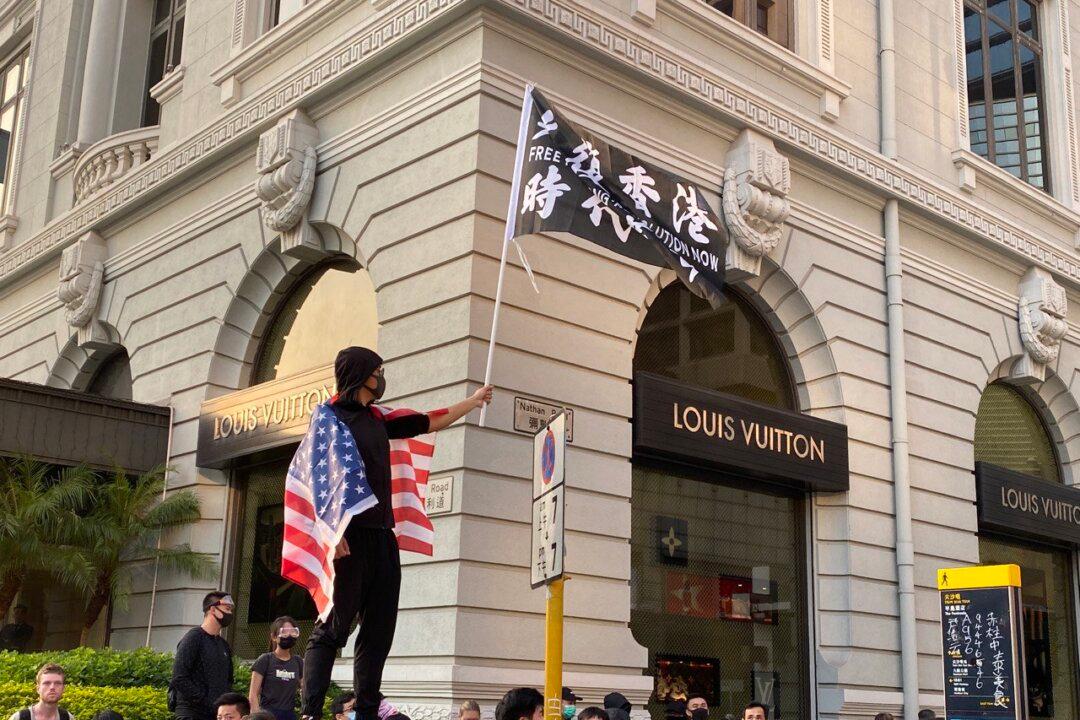HONG KONG—China said on Dec. 2 it will suspend U.S. Navy visits to Hong Kong and sanction several American pro-democracy organizations in retaliation for the signing into law of legislation supporting human rights in the city.
While the nature of the sanctions remained unclear, the move appeared to back up Chinese threats that the United States would bear the costs of the decision.





